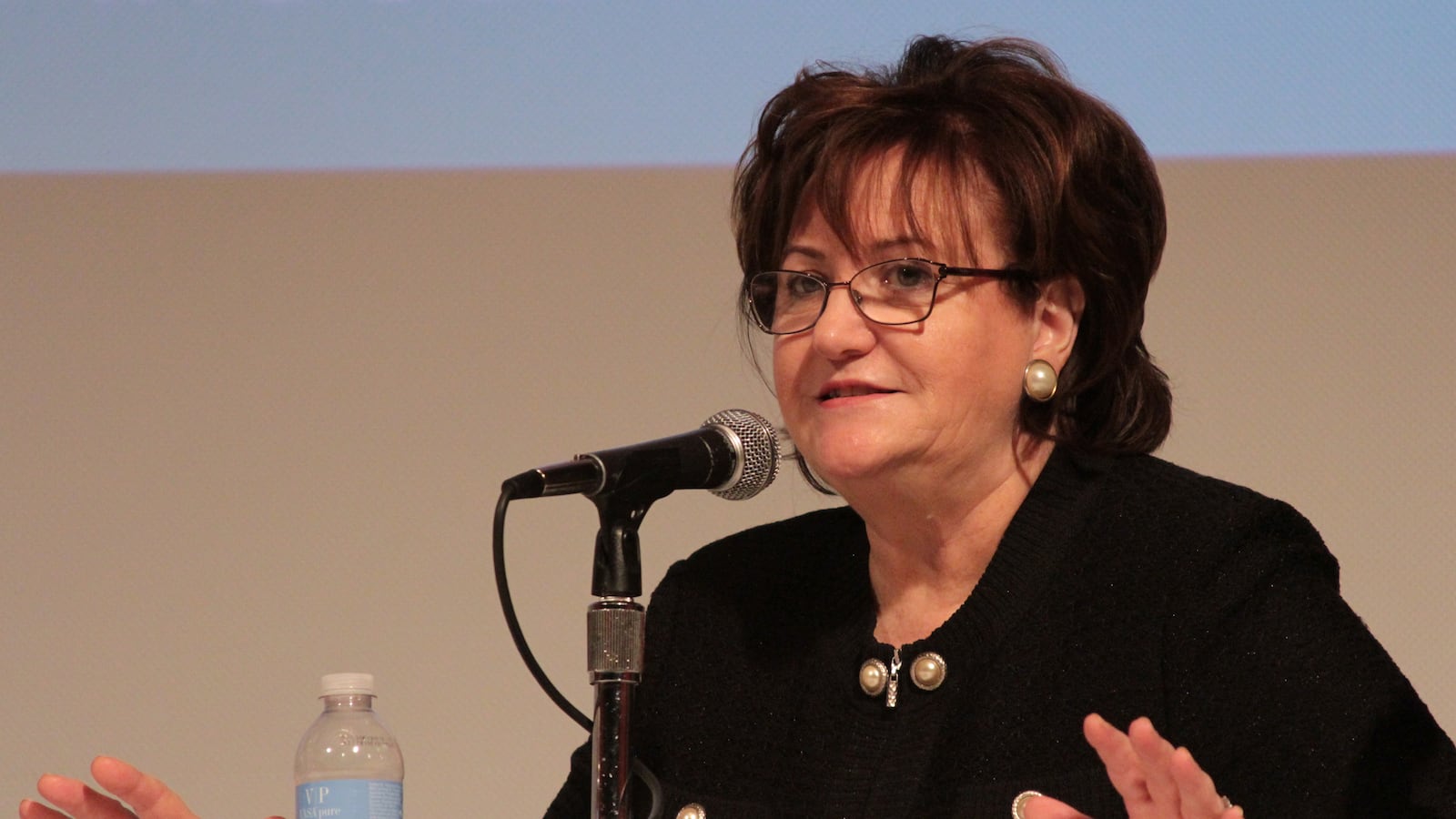The head of New York’s education department came down hard Thursday on teachers who encouraged the growing boycott of state tests this year.
“I think opt-out is something that is not reasonable,” State Education Commissioner MaryEllen Elia said at an event hosted by the teacher advocacy group Educators 4 Excellence. “I am absolutely shocked if, and I don’t know that this happened, but if any educators supported and encouraged opt-outs. I think it’s unethical.”
Elia’s comments came after an unprecedented number of students declined to take the New York’s English and math exams this spring. Tallies released last week put the total at about one in five students statewide, though the opt-out movement had a smaller presence in New York City.
The commissioner’s remarks are in line with her previous comments about the tests, which Elia has defended as tools that help educators guide their work, track achievement gaps between student groups, and indicate when individual schools aren’t measuring up. But parents and advocates who have encouraged the opt-out movement say the tests don’t provide useful information, encourage schools to narrow their curriculum, and feed into unhelpful teacher evaluations.
Elia is under pressure to keep the movement from growing, which could jeopardize teacher evaluations and assessments of struggling schools in some districts. Since starting in July, she’s announced that the state is replacing the controversial test-maker Pearson and called attention to a planned review of the Common Core standards.
At another point in the event Thursday, the commissioner defended teachers against critics of the education system, saying that pundits shouldn’t direct blame toward those doing the work of helping students learn.
“I’m a commissioner that will never bash teachers,” she said. “We can’t look at making the teacher the scapegoat for problems that may have existed in bureaucracies we have to fix.”
Elia also criticized the federal education department for not allowing the state to make changes that could have reduced or eased testing for students with severe disabilities and some English learners.
“I believe we have not done as a profession, and the education leaders of this country through [the Department of Education], have not done what’s necessary to put in place appropriate assessments for kids who are severely disabled,” she said.
This spring, federal officials rejected New York’s appeal to exempt English learners who have attended U.S. schools for less than two years from taking the tests. That waiver would have also provided more flexibility to adjust the difficulty level of tests taken by students with severe disabilities.
“I’ve had conversations with U.S. DOE about it, and we need to get there,” Elia said. “It is on my agenda.”

